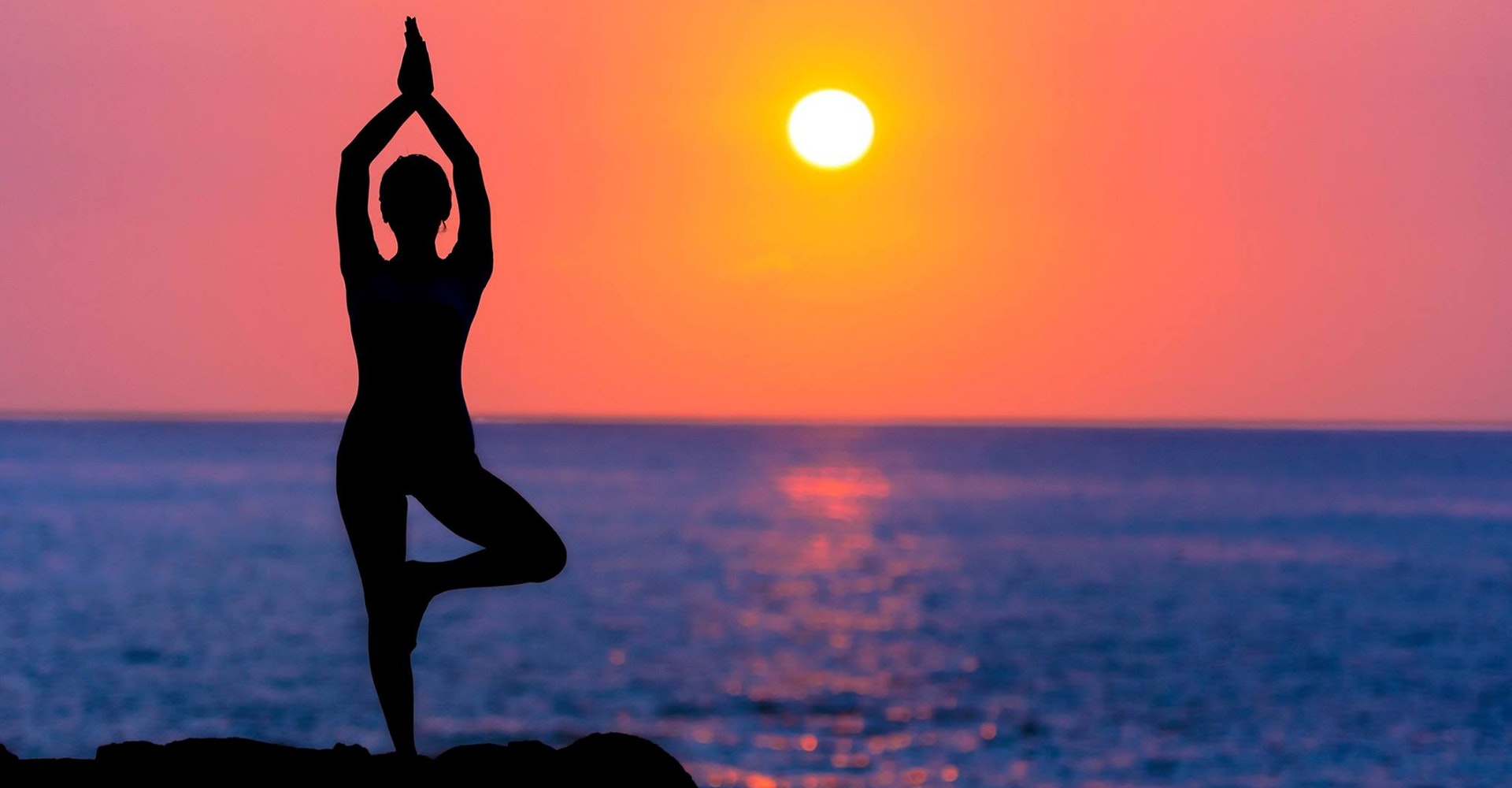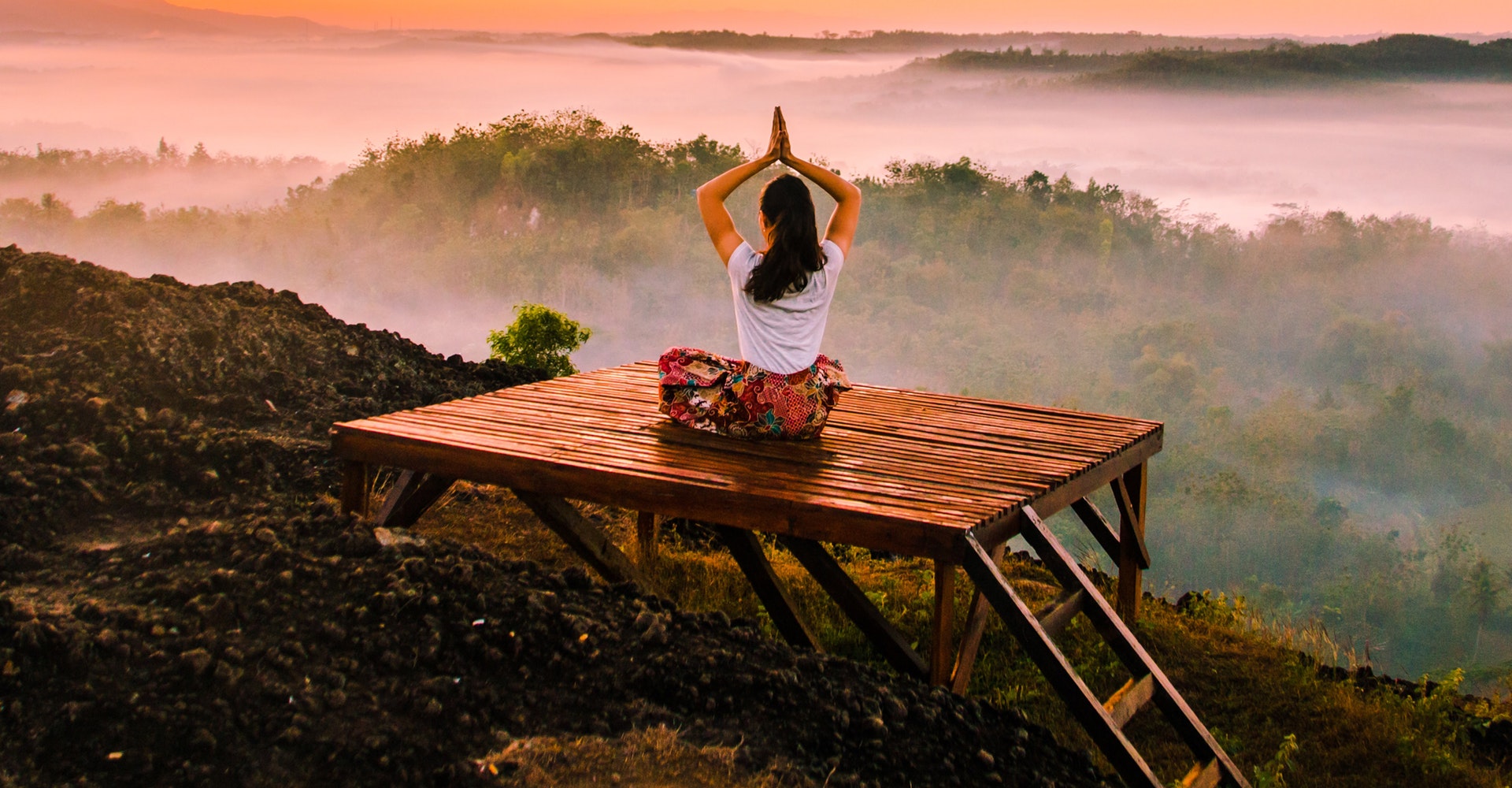Recovery-centered yoga can provide healing and focus to overcome addiction.
Some people exercise to get out of their heads. If I move more, I can think less, goes their thinking. But is that what you need for recovery?
There’s one exercise that actually reconnects your mind to your body: recovery-focused yoga. Let’s get into what that means, with the help of recovery teacher Kyczy Hawk.
First: Who is Kyczy Hawk?
She’s a seasoned recovery-focused yoga teacher who leads the Sunday “Yoga Recovery” meeting at In The Rooms. Her life’s work is to lead others through the same addiction recovery she lives each day. And that work is specifically yoga recovery.
After all, it was yoga that brought her into a higher level of personal recovery. “I was going to meetings, but I’d hit a new bottom with workaholism,” she says. But a group yoga class brought her back to herself. “Something broke free inside of me, and I began crying. I’d gotten deadened to my own feelings and my own self-concern. But that night, I slept well for the first time in a long time.”
Within five years, Kyczy had begun teaching that freeing yoga, called “Yoga of 12 Step Recovery” (Y12SR). That has since led her to write four books on what she’s learned: Yoga and the Twelve-Step Path, Life in Bite-Sized Morsels, From Burnout to Balance, and Yogic Tools for Recovery: A Guide to Working the Steps. She’s got a significant body of knowledge. And she was happy to help us explain why yoga can be a great recovery tool for just about anyone.
Why Yoga Strengthens Addiction Recovery
“First, yoga is a healing practice,” Kyczy says. That could sum up the good that yoga can do for addiction recovery. But we’ll go a little more in depth.
Yoga Gives Healing
You should know that yoga doesn’t just have to be exercise. How Westerners practice yoga often means pushing physical limits and meeting goals. But its original eastern practitioners intended more than physical fitness. Kyczy calls her first experience with communal yoga “something magical.” That’s what opened her up and kept her coming back for more: “it released my fascia (the fingerprints of memory).”
You see, recovery-focused yoga unwinds the long-time pains embedded in our bodies. Kyczy explains that “what happens in our lives leaves fingerprints on our bodies.” That might be loss, rage, anxiety, or other emotions and experiences. Many other exercises won’t heal this deep-seated anguish, but careful yoga (its philosophy as well as its physicality) can help your body let go of its pains. “You learn to become more comfortable in your own body, just as you are,” Kyczy explains.
“After all,” she says, “yoga is a holistic solution for a holistic disease. Addiction holistically affects your body, mind and spirit. And yoga means union of your body, mind and spirit.”

Yoga Gives Focus
That healing matches the self-restoration of the 12 Steps. Kyczy believes that, like the ancient yogis, the Steps bring us back to our true selves. “Holding the yoga stretches and poses helps you feel the present moment, to feel who you are. The recovery path works just like that.” Yoga requires total focus. So does addiction recovery, which must continue one day at a time.
Addiction recovery grows from the perverse integrations of addiction, she explains. “When you’re addicted, you’re practicing integration. But you’re integrating with self-destruction through this disruptive substance. It’s a disintegration of who you really are.”
This idea frames recovery as a return to full personal integration, which Kyczy sees in the foundations of 12 Step literature. For her, recovery invites us to be who we are all over again. “We move along our recovery path to closer integration with our spiritual self and our true values. Yoga gives you the physical feedback of that process.” Its physical focus mirrors the emotional focus that every day in recovery requires.
So What Now?
Decide if yoga for recovery walks a path that you’re interested in (for yourself or a loved one). Kyczy understands that its philosophies and practice won’t draw everyone: “Yoga is for everyone, but not everyone enjoys yoga.” She still hosts that Sunday meeting at 11 am EST. It happens in two parts: the first is a typical recovery meeting of speaking, sharing and listening; the second is the stretching and movement which Kyczy touts as crucial healing.
Come by, if you like. And whether you do or not, visit the rest of In The Rooms and its weekly peer recovery meetings. We can tell you a little more about exercise and nutrition in recovery, but that’s only the start. Join today and learn how our community can serve you!






